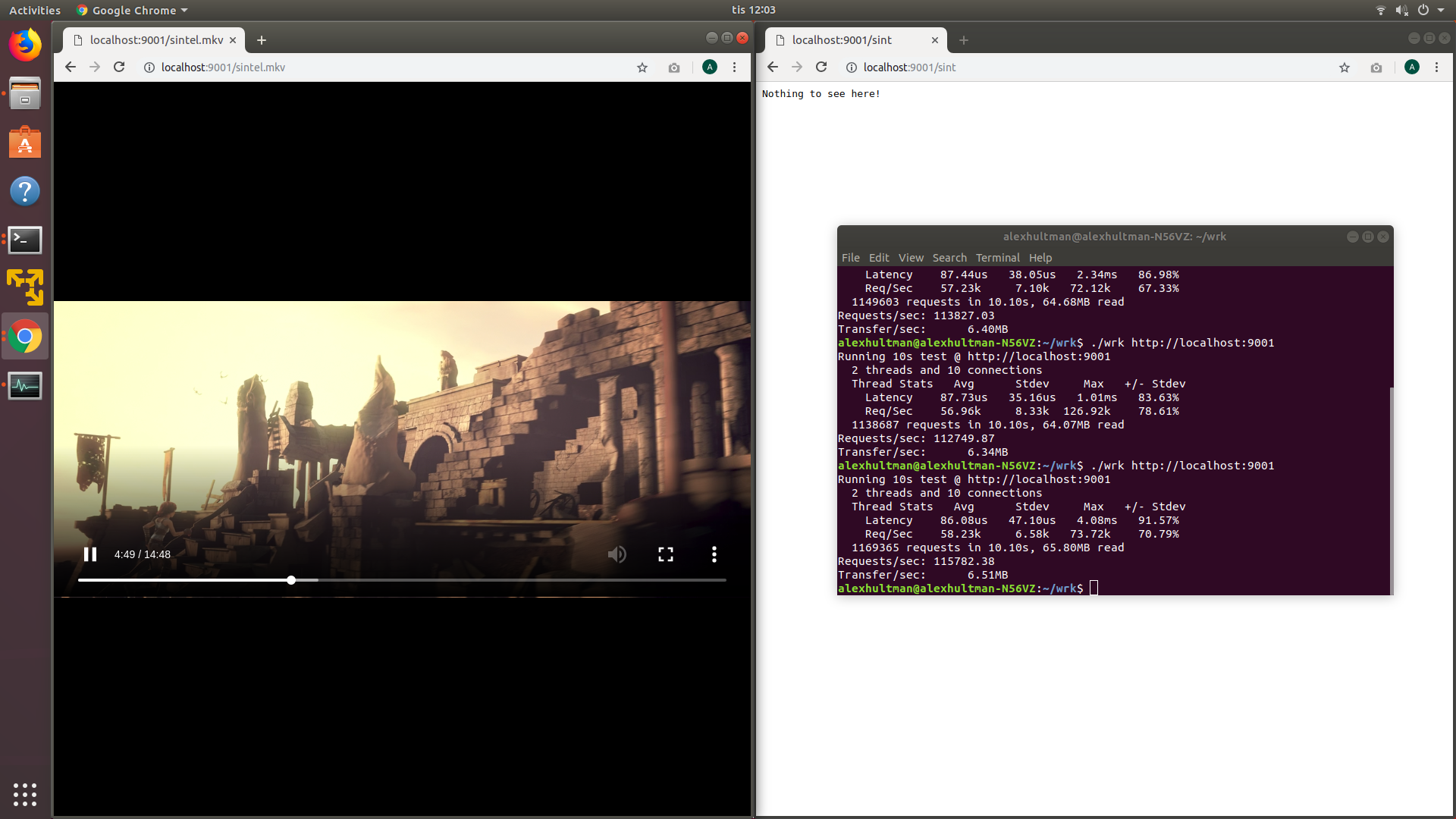3.9 KiB

µWebSockets™ (it's "micro") is simple, secure & standards compliant web I/O for the most demanding[1] of applications.
Outrun. Everyone.
This project is not your typical "web framework" à la 500 lines of JavaScript and a fancy logo. No, you're looking at a three part software suite of ~7k lines of C & C++, working in unison with Google V8 to bring you one of the most memory scalable and performant I/O scripting environments available.
It runs 15x faster than Deno and scales to millions of connections using less than half a GB of user space memory.
Read the release post and/or the 1 million WebSockets post.
No compiler needed.
We use AppVeyor & TravisCI to automatically pre-compile binaries for Linux, macOS and Windows with every push. New releases are tagged from branch binaries and can be installed using NPM like so:
npm install uNetworking/uWebSockets.js#v15.4.0
where v15.4.0 is the particular Git tag you wanted to use. "Nightly" builds can be installed with suffix #binaries.
In a nutshell
There are tons of examples but here's the gist of it all:
const uWS = require('../dist/uws.js');
const port = 9001;
const app = uWS.SSLApp({
key_file_name: 'misc/key.pem',
cert_file_name: 'misc/cert.pem',
passphrase: '1234'
}).ws('/*', {
/* Options */
compression: 0,
maxPayloadLength: 16 * 1024 * 1024,
idleTimeout: 10,
/* Handlers */
open: (ws, req) => {
console.log('A WebSocket connected via URL: ' + req.getUrl() + '!');
},
message: (ws, message, isBinary) => {
/* Ok is false if backpressure was built up, wait for drain */
let ok = ws.send(message, isBinary);
},
drain: (ws) => {
console.log('WebSocket backpressure: ' + ws.getBufferedAmount());
},
close: (ws, code, message) => {
console.log('WebSocket closed');
}
}).any('/*', (res, req) => {
res.end('Nothing to see here!');
}).listen(port, (token) => {
if (token) {
console.log('Listening to port ' + port);
} else {
console.log('Failed to listen to port ' + port);
}
});
Streams
Proper streaming of huge data is supported over Http/Https and demonstrated with examples. Here's a shot of me watching real-time streamed HD video from Node.js while simultaneously scoring a 115k req/sec with wrk. For my computer, that's about 5x that of vanilla Node.js (without any HD video streaming/playing).
Pub/sub
WIP section --
Benchmarks
In the following charts "µWS v0.15" denote the C++ project - performance retention for µWebSockets.js inside of V8 is about 65-75%, similar to or above the top performing Golang modules. User space memory usage for a million WebSockets is in the 100-400mb range.
| Http | WebSockets | PubSub |
|---|---|---|
 |
 |
todo: Socket.IO, SocketCluster, ClusterWS |
Build from source
Recursively clone, and enter, this repo:
git clone --recursive https://github.com/uNetworking/uWebSockets.js.git
cd uWebSockets.js
For Unix (Linux, macOS, FreeBSD):
make
For Windows (in an x64 developer terminal):
nmake Windows
Test it out
node examples/HelloWorld.js
